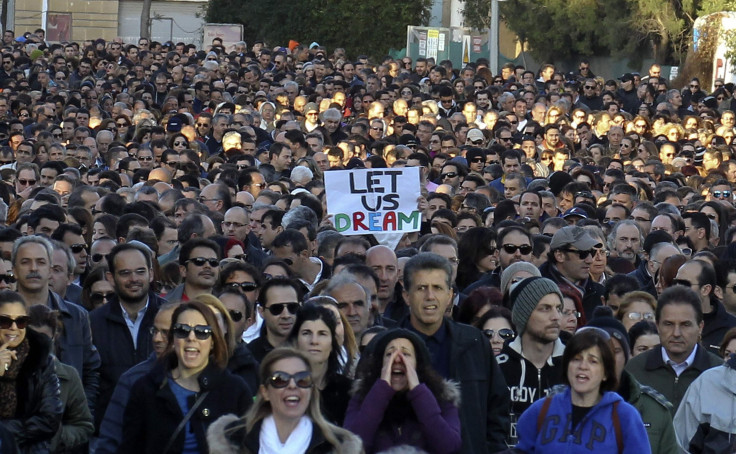Five Ways The Euro Zone Has Changed Since The EU, IMF And ECB, Known As The Troika, Financially Rescued Cyprus

The financial rescue of Cyprus marks the fifth such bailout in five years. But the deal reached Monday to save Cyprus was unlike previous financial rescues by the troika, as the International Monetary Fund, the European Central Bank and the European Union are collectively known.
Unlike in every previous bailout, this time the troika forced ordinary depositors and senior bondholders in the country being bailed out to absorb heavy losses to qualify for its €10 billion ($13 billion) aid package. In the previous four financial rescues bank deposits of private citizens and the privileges of senior bondholders were protected. But no more.
Jeroen Dijsselbloem, the finance minister of the Netherlands and a leader of euro zone financial ministers, said this week’s rescue could be a “template” for future crises. That means that for governments, regulators, investors and private citizens, the financial and economic landscape is different in at least five ways.
1. Bank funding will be harder. Institutions that are considering investing in euro zone banks as senior bondholders will hesitate. The fact is that after Cyprus there is little apparent difference – in the euro zone at least – between a junior bondholder and a senior bondholder. If the pool of potential senior bondholders dries up, banks will be hard pressed to get the money they need to operate. Naturally, bank shares led European markets lower Monday.
2. Retail banking will suffer. While depositors with less than €100,000 ($129,000) in their accounts were protected in the Cypriot rescue – per an EU-mandated deposit guarantee -- those with more than €100,000 in Popular Bank of Cyprus, also known as Laiki, will lose all or at least much of their money. The same goes for Bank of Cyprus depositors who have more than €100,000. No matter which euro zone country private citizens are in, they now have every reason to worry about the safety of bank checking and savings accounts. This particular takeaway was something that numerous analysts warned about ahead of time. “The very fact that one country has considered a tax on bank deposits means that if any other country even hints at seeking support from fellow [European Monetary Union] neighbors, some of its households will worry that bank accounts could be under threat,” Andrew Milligan, head of global strategy at Standard Life Investments, said before Monday’s agreement.
3. Trust has been broken. Behind the financial pain individuals are absorbing at the moment, the troika’s flip-flop on protecting private depositors’ assets damaged some of the trust that has been holding the 17-member euro zone together. That appears to be a contrast to the Treaty of Rome, the 1957 treaty that laid the groundwork for what is now the European Union. That treaty says its intent is to foster “an ever closer union among the European people.” The trust that must precede a “closer union” appears, at least between northern Europeans and southern Europeans, to be at pre-1957 levels.
4. Hard assets are looking better. Prospects that Italian or Spanish banks could fail or come close to failing is making so-called hard assets like real estate and precious metals more attractive than securities. “The reality is that the impact of recent events for euro zone-crisis management ahead offers underlying support for gold,” UBS gold analyst Joni Teves said.
5. Bargains in Cyprus. It may be distasteful to acknowledge so quickly what has been true in each of the euro zone’s other financial crises, namely, the bargains, especially in real estate. But there will be bargains. Further, budget-conscious vacationers will be watching to see if a week or two on a Cypriot beach becomes noticeably less expensive than a week or two in Corfu or Majorca.
© Copyright IBTimes 2024. All rights reserved.












